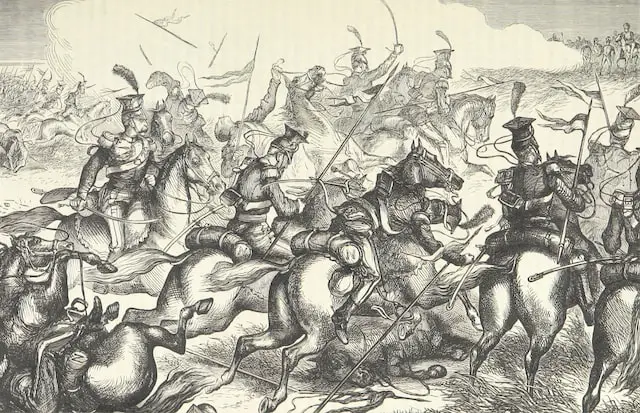Songs About The British Empire
The term “British Empire” is used to refer to all of the regions and countries all over the world that was formerly under the control of Britain.
It was established over a long period of time, and as it grew, it eventually encompassed significant portions of North America, Australia, New Zealand, Asia, and Africa, in addition to some smaller portions of Central and South America.
The years 1775-1783 were a pivotal time in British history due to the fact that during the American War of Independence, the country suffered the loss of a significant portion of its empire.
The equity and authority that Britain gained as it built its empire came at a price, and heartbreakingly, a large portion of that price was paid by the Indigenous Peoples.
These were the tribes and societies that had lived in Britain’s so-called ‘new’ lands for centuries prior to British colonisation. Songs have been sung to praise and tell great tales of the mighty British Empire and we’ll be reviewing those in the next few paragraphs. Long live the British Empire! Enjoy
6 Songs About The British Empire
1. “God Save The Queen” by The Sex Pistols
This song is a criticism against the political system in England. A significant number of young people, especially in the United Kingdom, experienced feelings of estrangement due to the oppressive authority of the ancient royal monarchy, and the Queen (Queen Elizabeth) became a symbol for them.
At the end of the day, Johnny Rotten’s point of view appears to be that things are going OK for the queen, despite the fact that this comes at the expense of the general populace.
Or, to put it another way, the power does not reside in the hands of the rulers but rather in the hands of the governed. But because the people have given themselves over to this “dream,” which consists of idolising royal rule, it is as if their “future” has already been compromised. This is because the people have given themselves over to this “dream.”
This Sex Pistol hit was so controversial that the BBC decided against airing it because of the strong feelings it provoked. Both the song’s lyrics and the artwork on its cover were seen as being critical of the British monarchy.
2. “Rule, Britannia” by James Thomson
The rollicking music known as “Rule Britannia!” is very popular in the United Kingdom. It is highly possible that all of us have sang it at some point or another, be it at the end of the Proms or a sporting event. Now, the lyrics are coming under scrutiny, and their origins are being investigated once more.
In the context of the Black Lives Matter movement, early reports stated that the BBC was apprehensive about the song’s links to both slavery and colonialism. This song because of its rather controversial meaning received many criticisms.
3. “Goodbye England” by Laura Marling
Hearing this wonderful song about life and love and family and home revitalises me at a time in my life when middle age muddles my perceptions of the world.
This short life, this interminable search for an answer, and the constant questioning of what on earth it is all about make for a peculiar journey.
This lead single from Laura was released on December 11, 2009. The song’s lyrics seem to be an ode to winter and her native England, with the speaker becoming overwhelmed with her current situation and making plans to leave as the song progresses. The glamour of her home country is said to be best captured when it is “covered in snow.”
4. “Four Loom Weaver” by Abel Selaocoe
Iron Bridge was built at the end of the 18th century. Iron foundries were established in this area in the 1700s, and their production of the metal was responsible for powering decades of revolutionary change in transportation and commerce in Britain and around the world.
The traditional ballad known as “The Four Loom Weaver” captures the spirit of the period of labour by evoking the sufferings of the people who toiled away at jobs that were difficult and cruel.
5. Jimmy and Sid’s“Peat Bog Soldiers”
This song evokes a strong emotion because not only is it based on a true-life event, it’s delivery is right above par. During very hot days, the high tower of Richmond Castle casts intimidating shadow over the town below.
The walls of the castle were 11 feet thick, making it an ideal location for a jail during the First World War. In 1916, this location was used to house sixteen men who refused to participate in the war on moral grounds.
The prisoners who were later known as the Richmond Sixteen decorated the walls of the cramped rooms they were held in with their own markings in the form of graffiti.
6. “Sunday Bloody Sunday” by U2
On January 30, 1972, in Derry, the British Army responded to a civil rights demonstration against the partition of Ireland by opening fire, which resulted in the deaths of thirteen protesters.
One of the most significant events that took place during “The Troubles” was a day that came to be known as “Bloody Sunday.” This tragic event led to an increase in the number of people joining the rapidly expanding IRA.
In the immediate wake of the massacre, both John Lennon and Paul McCartney wrote the song, but it was Dublin band U2 who penned the final response 11 years later.
The band’s most well-known performance of Sunday Bloody Sunday occurred at Live Aid, where it was also the opening track on the band’s third album, War.
Bono was eager to highlight that the song was “not a rebel song,” but rather a humane cry for help against the massacring that proceeded throughout the couple of years and beyond. He stated that the song was “not a rebel song” in a number of interviews. A unique acoustic rendition of the song was performed by Bono and The Edge to commemorate the 50th anniversary of the incident.







